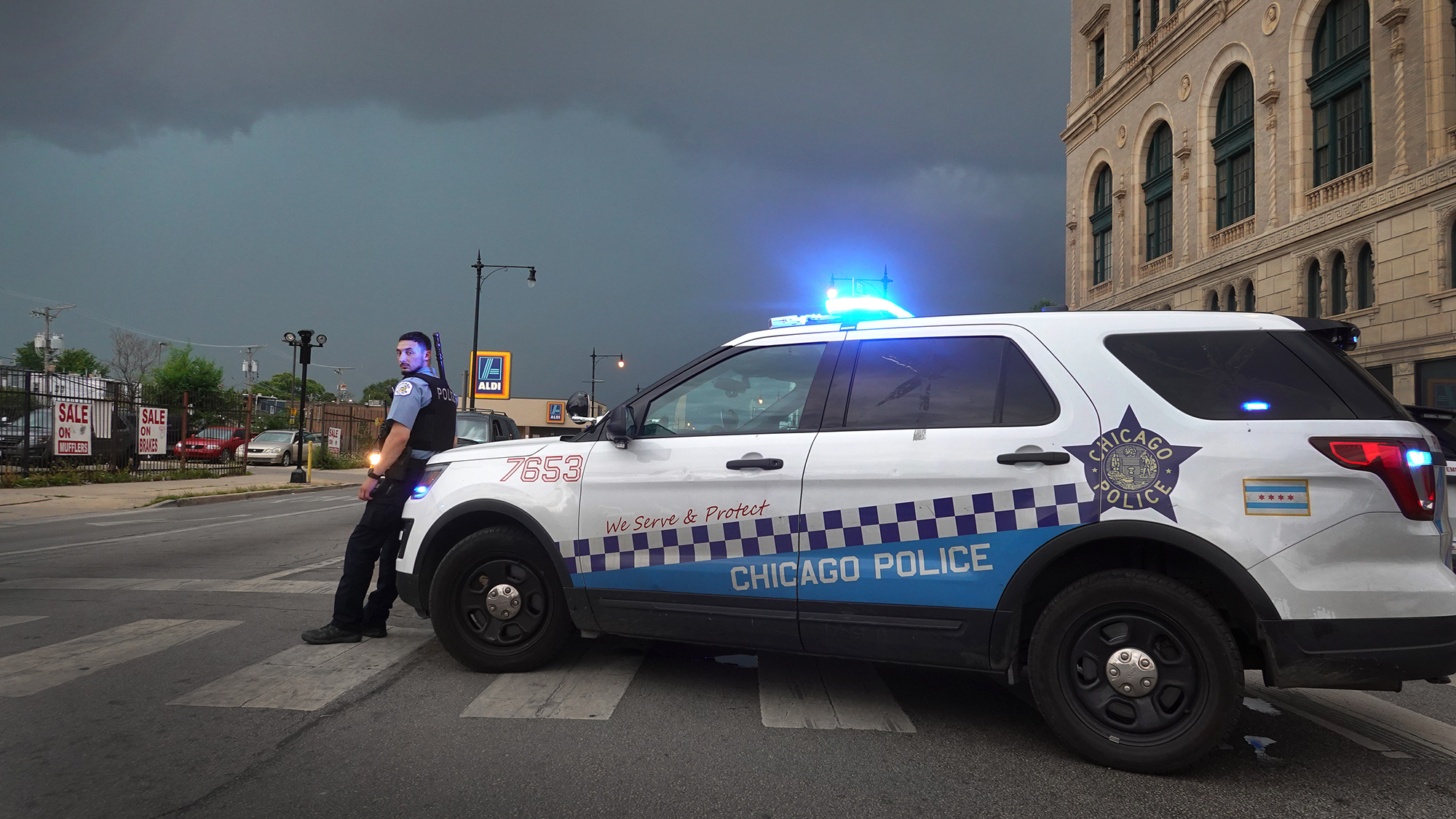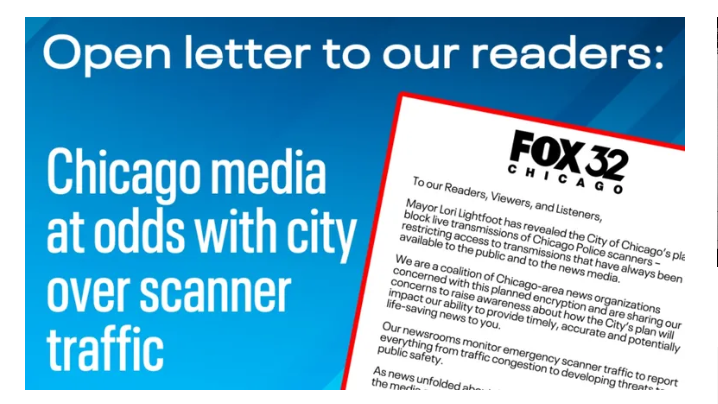Chicago TV Stations Fight Plan To Block Police, Fire Scanners
Encryption makes it harder to inform public, news outlets say in open letter

The smarter way to stay on top of broadcasting and cable industry. Sign up below
You are now subscribed
Your newsletter sign-up was successful
Chicago TV stations and newspapers are fighting a plan by the city to block live transmissions from police and fire department scanners.
Police scanners have long been at the heart of TV newsroom assignment desks, but a growing number of cities are using encryption to make it harder for media and the public to listen in to dispatch calls in real time.
The Chicago stations said they tried to meet with Chicago Mayor Lori Lightfoot about the matter, but said she refused to discuss the situation. On Monday, the stations posted an open letter to viewers and readers describing how the plan to encrypt police and fire radios would make newsgathering more difficult and lead to the public being less well informed about potentially dangerous incidents.
A statement attributed to city officials published by WLS-TV, said that “encrypted radios will eliminate 'rogue' radios with disruptive, often derogatory transmissions that disrupt the day-to-day traffic for emergency personnel. Having encrypted radios will provide added protection for communities and the personal information of victims, suspects, witnesses, and juveniles.”
The statement added that encryption “also will enhance officer safety and prevent suspects from gaining a tactical advantage by listening to live incidents and investigations."
The stations argue that “the Mayor’s decision to restrict our access to scanner channels will harm our ability to keep you, our readers, viewers, and listeners, safe and informed, and render it more difficult to hold our government and its personnel accountable.”
In the open letter, the stations point to several recent instances in the recent past when information from scanners helped keep the public out of harm's way, including after the shooting at the Fourth of July parade in Highland Park, Illinois.
The smarter way to stay on top of broadcasting and cable industry. Sign up below

More recently, without the ability to monitor scanners, the public was not informed about dangerous incidents.
They said a shooting took place at a courthouse and police district in Chicago last week in broad daylight. “The perpetrators fired more than 40 shots and escaped on an expressway. You did not see, hear, or read about that incident as it was happening. The City of Chicago prevented you from knowing about this dangerous incident by blocking all live scanner transmissions. This jeopardized the lives of everyone at that police department, everyone at that courthouse, everyone on that expressway,” the stations said.
In another incident a man with a rifle in Chicago's West Pullman neighborhood was shot by Chicago Police. “We were not able to alert the public as it was happening. All of this took place around dinnertime, as people returned home from work and children returned home from school,” the stations said.
The issue goes beyond Chicago, the stations said, pointing to how after the school shooting in Uvalde, Texas, an analysis of scanner transmissions revealed that local authorities did not accurately portray how law enforcement responded to the situation.
Other cities are also starting to encrypt police scanner data. According to KTVQ-TV in Billings, Montana, the police department there began encrypting communications last month.
In October, the Lawton, Oklahoma, police department spent $4 million on a radio system upgrade that include encryption of dispatch calls, according to KSWO-TV.
Louisville and Virginia Beach also instituted encryption programs earlier this year.
In Colorado, scanners have been encrypted since 2016 in Aurora and in Denver since 2019. The state legislature last year passed a law requiring agencies to create policies for giving news media access to dispatch channels, but the cities haven’t worked out agreements yet with the media, according to the Colorado Freedom of Information Coalition.
The New York City Police Department is also looking to upgrade its communication system in a way that would enable encryption by 2024.
In some cases, the police departments said they use the encryption to delay access to communications by 15 minutes, in order to allow officials to secure the scene of a crime or accident.
“Real-time access to police scanners promotes transparency and accountability by law enforcement,” the Chicago stations said. “To put it simply, the media’s informative reporting on these events would never have been possible without real-time access to scanners.” ■
Jon has been business editor of Broadcasting+Cable since 2010. He focuses on revenue-generating activities, including advertising and distribution, as well as executive intrigue and merger and acquisition activity. Just about any story is fair game, if a dollar sign can make its way into the article. Before B+C, Jon covered the industry for TVWeek, Cable World, Electronic Media, Advertising Age and The New York Post. A native New Yorker, Jon is hiding in plain sight in the suburbs of Chicago.

